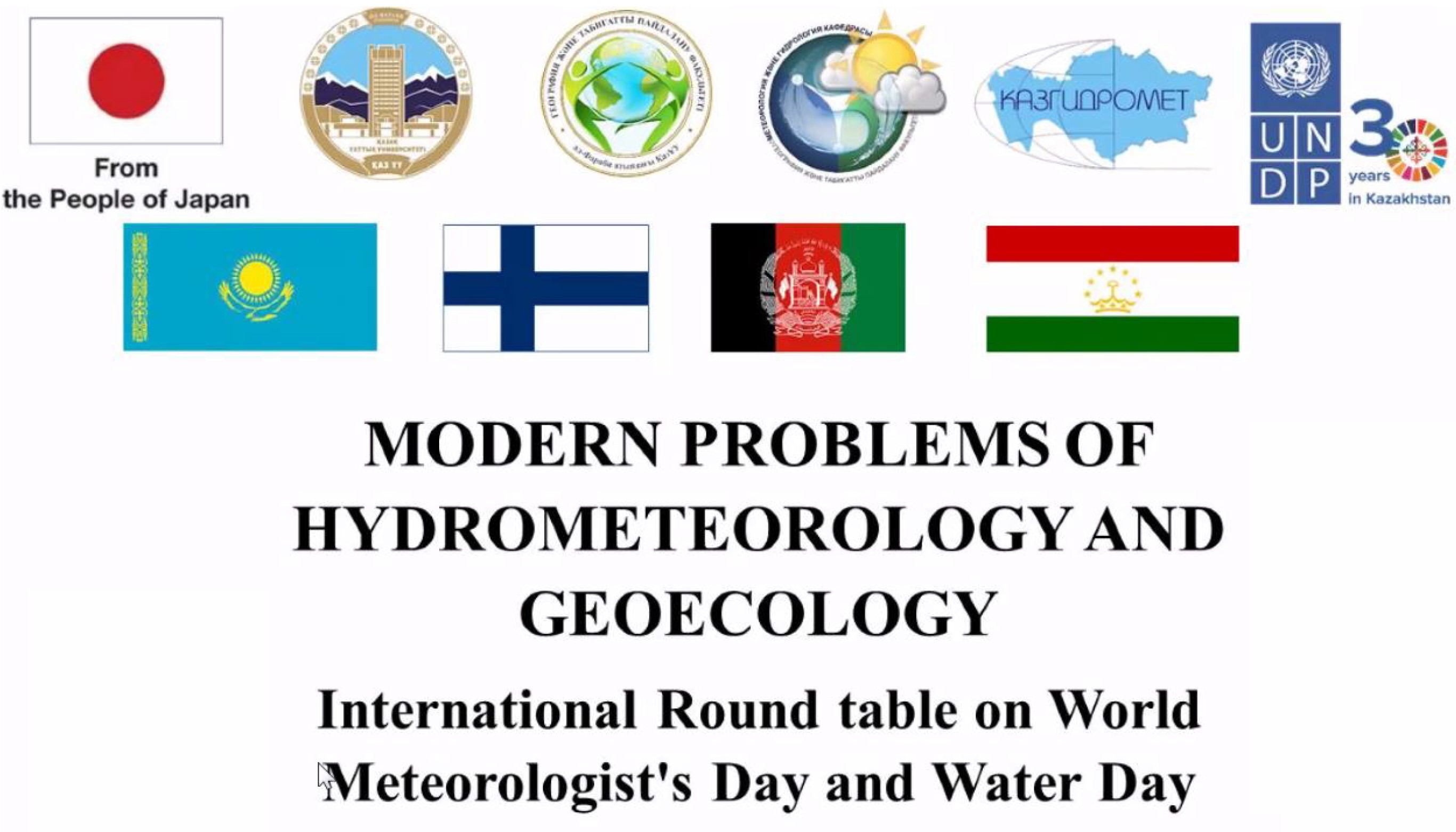Project Description

On 17 March 2023, the research seminar on “Modern Problems of Hydrometeorology and Geoecology“ with round table discussions took place in a hybrid mode (Almaty, the Republic of Kazakhstan). The event was hosted by the Al-Farabi Kazakh National University (KazNU), Faculty of Geography and Nature Management, Department of Meteorology and Hydrology. Participants (both onsite and online, about 50 persons) from different Universities and research organizations, including the National Hydrometeorological Service of Kazakhstan (KazHydroMet) and private companies (from the Republic of Kazakhstan, Afghanistan, Finland, Japan, Tajikistan), attended the event.
A series of oral presentations – about applications of satellite data in meteorology; climate change and anthropogenic flood/drought; sustainable development goals and securing water resources for dry seasons and droughts; methods for calculation surface evaporation; applications of different hydrological models for forecasting runoff of rivers, short-term changes in sea levels, water balance in lakes; new technologies in weather and environment systems; assessment of climate change on water resources and its impact on agriculture; real time monitoring of meteorological data; current state and hydroecological problems of rives; and others – was delivered following by questions and comments.
The oral presentation – overview of the PEEX Programme – was delivered from the INAR (Institute for Atmospheric and Earth System Research of the University of Helsinki, UHEL) side by the PEEX Coordinator Dr. Hanna K. Lappalainen. For participants, the PEEX multidisciplinary, multiscale and multicomponent research and capacity-building initiative was introduced in details including aspects and main themes of the PEEX Science Plan, GlobalSMEAR Initiative, SMEAR concept, network of SMEAR stations, results/publications of various international research and educational activities/projects realised within the PEEX frameworks, Climate University activities and courses, Atmosphere and Climate Competence Center (ACCC), and others.
The questions after the presentation showed interest of participants in the SMEAR station concept realised by UHEL-INAR and possibility to apply the same approach in Kazakhstan, in linking research and educational activities at such stations (on example of the SMEAR-II station in Hyytiala, Finland), others. As initial step, a suggestion to start communication and sign the PEEX-MoU was suggested. The participants have been also invited to attend online the ACCC Impact Week on “Climate change and green transition as global challenges for science and society” (https://www.acccflagship.fi/index.php/event/accc-impact-week).
Text by Hanna Lappalainen, Alexander Mahura (INAR)
